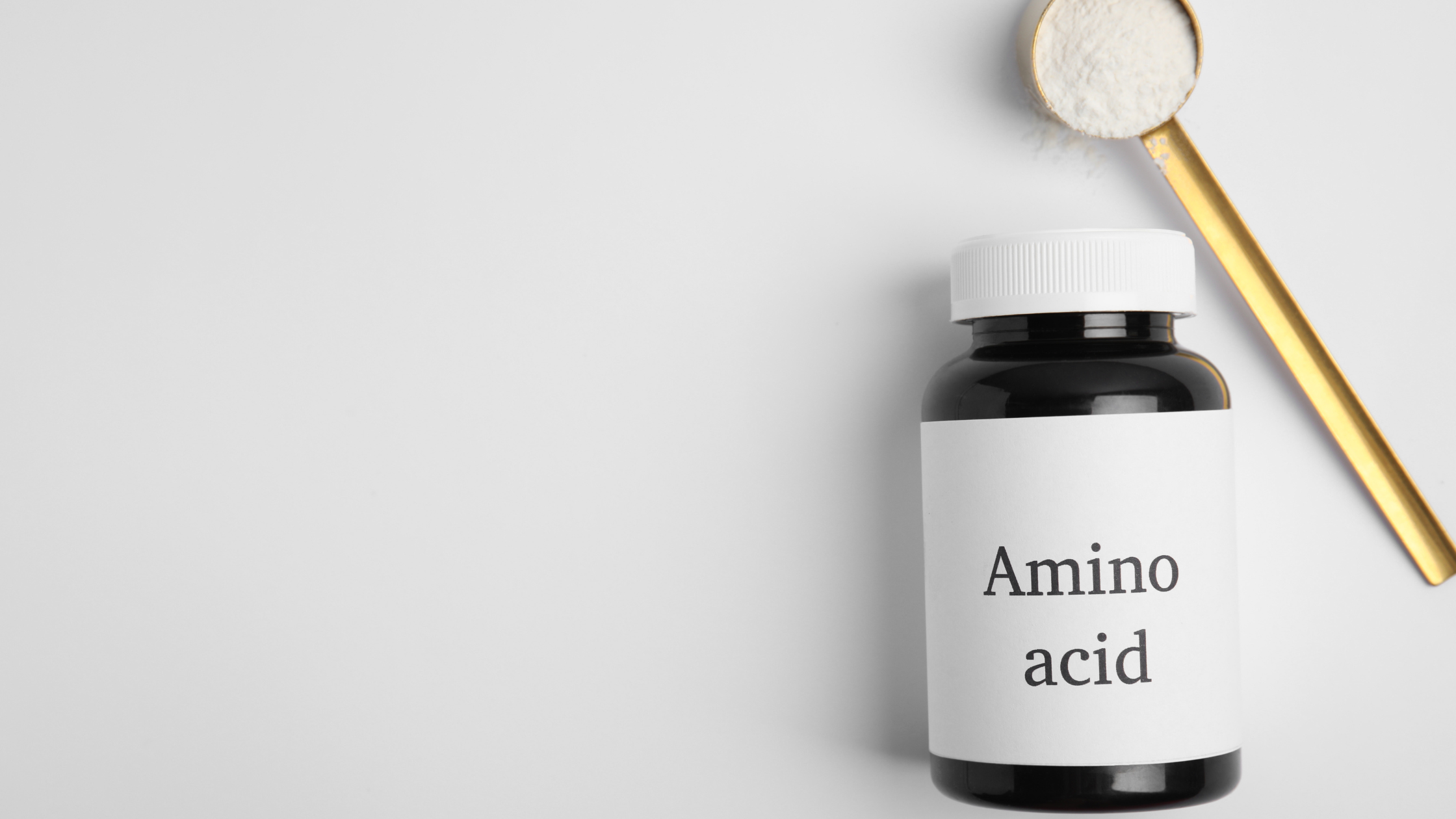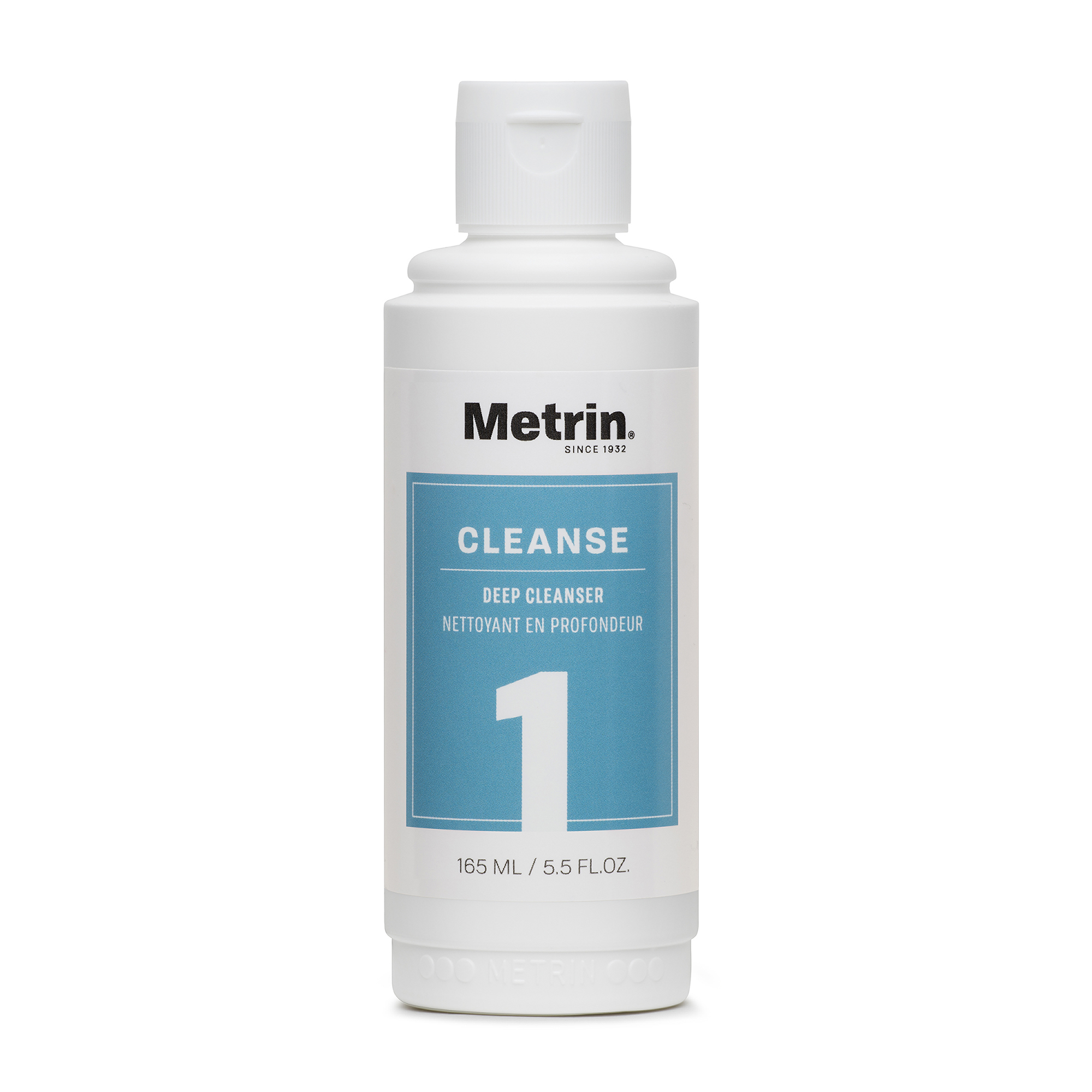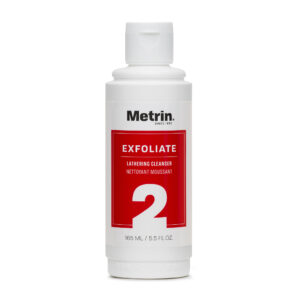Amino Acids for Skin: The Science and Benefits
Amino Acids for Skin: Why Your Routine Needs Them
You’ve heard of hyaluronic acid, retinol, and vitamin C. But amino acids for skin rarely get the spotlight — despite being essential for hydration, repair, and resilience. These small yet powerful molecules are the building blocks of collagen, elastin, and keratin, the proteins that keep your skin firm, smooth, and radiant.
At Metrin, we’ve been harnessing amino acids for skin health since 1932. Here’s why your complexion depends on them, and how our skincare system ensures you benefit from them every single day.
What Are Amino Acids (and Why They Matter for Skin)?
Amino acids are organic compounds that form proteins, including collagen and elastin — the scaffolding that gives skin its firmness and bounce. Without amino acids, your skin can’t properly repair damage, stay hydrated, or defend against environmental stress.
There are two main categories:
- Essential amino acids: Your body can’t produce them; you must obtain them through diet or topical application.
- Non-essential amino acids: Your body can make these, but levels can still decline with stress, aging, or skin damage.
When applied topically, amino acids strengthen the skin barrier, attract water for lasting hydration, and stimulate collagen production.
The Benefits of Amino Acids for Skin
Hydration and Moisture Retention
Serine, glycine, and lysine are humectants, meaning they attract and hold water. These amino acids help your skin’s natural moisturizing factors (NMFs), keeping your complexion plump, radiant, and resilient against dryness.
Barrier Repair and Redness Reduction
Histidine has anti-inflammatory properties that calm irritation and balance skin’s pH. Cysteine and methionine support healing, making amino acids especially valuable for sensitive or reactive skin.
Antioxidant Protection
Many amino acids enhance your skin’s natural antioxidant defenses, protecting against free-radical damage from pollution, UV exposure, and stress.
Skin Repair and Renewal
Methionine and cysteine accelerate healing and reduce the appearance of scars. Amino acids help rebuild damaged tissue, ensuring smoother texture and even tone.
“After using Metrin for years, my skin feels hydrated and bounces back even in harsh winters.” — Diana, 52
Not All Amino Acids Are the Same
Each amino acid plays a different role, and skin concerns respond best to specific blends. Here’s a breakdown:
| Skin Concern | Key Amino Acids | Delivered in Metrin via |
| Dry or Dehydrated Skin | Glycine, Serine, Alanine | Organic aloe vera (Steps 1, 3, 5), soy protein (Step 2) |
| Aging or Mature Skin | Proline, Lysine, Glycine | Aloe vera, soy protein |
| Sensitive/Reactive Skin | Glutamine, Cysteine | Aloe vera, panthenol (Steps 2, 4, 5) |
| Oily or Acne-Prone Skin | Arginine, Methionine, Threonine | Soy protein, aloe vera |
This variety is why layering matters. A single serum may contain one or two amino acids, but your skin thrives when nourished by a spectrum.
How Metrin Delivers Amino Acids Effectively
Unlike many brands that add amino acids as a buzzword ingredient, Metrin builds them into every step of its five-part system. Here’s how:
- Double Cleansing for Absorption
The Deep Cleanser and Lathering Cleanser remove impurities and gently exfoliate with soy protein, prepping skin to absorb amino acids rather than leaving them on the surface.
- Double Moisturizing for Longevity
The Vita Conditioner and Enriched Vita Conditioner layer hydration from amino acid-rich aloe and soy protein, locking it in with essential fatty acids from sunflower oil. - Protective Layering
The Protective Lotion anchors hydration with allantoin, aloe, and panthenol, calming skin while creating a barrier for repair and renewal.
Our Secret Ingredient: Aloe That Works Harder
Metrin uses certified organic, cold-processed Aloe Barbadensis gel — not diluted extracts. This aloe contains 20 of the 22 amino acids your skin needs, including both essential and non-essential types.
Because aloe’s amino acids are in free-form, your skin can absorb and use them more efficiently. Plus, aloe enzymes help improve delivery, ensuring deeper nourishment in every application.
FAQ: Amino Acids for Skin
What do amino acids do for your skin?
They hydrate, repair, calm redness, stimulate collagen, and protect against environmental stressors.
Are amino acids good for aging skin?
Yes. Proline, lysine, and glycine support collagen and elasticity, helping reduce wrinkles and firmness loss.
Which amino acids are best for dry or sensitive skin?
Serine, glycine, alanine, and histidine are excellent for hydration and calming irritation.
Can amino acids help with acne or oily skin?
Yes. Arginine, methionine, and threonine aid healing, regulate oil balance, and support barrier repair.
What’s the difference between amino acids and peptides?
Amino acids are the raw materials; peptides are short chains of amino acids. Both support skin but in different ways.
Ready to restore your glow?
- Take Our Skin Consultation Questionnaire
Discover your skin’s needs and get tailored guidance.💌 Take the FREE Skin Care Questionnaire and we’ll help you get started. - Start with the Metrin Skincare System for Her
Our complete 5-step system is designed for long-term results, not short-lived “glow-ups.”👉 Shop the Metrin Skincare System for Her















 Lathering Cleanser for Her
Lathering Cleanser for Her